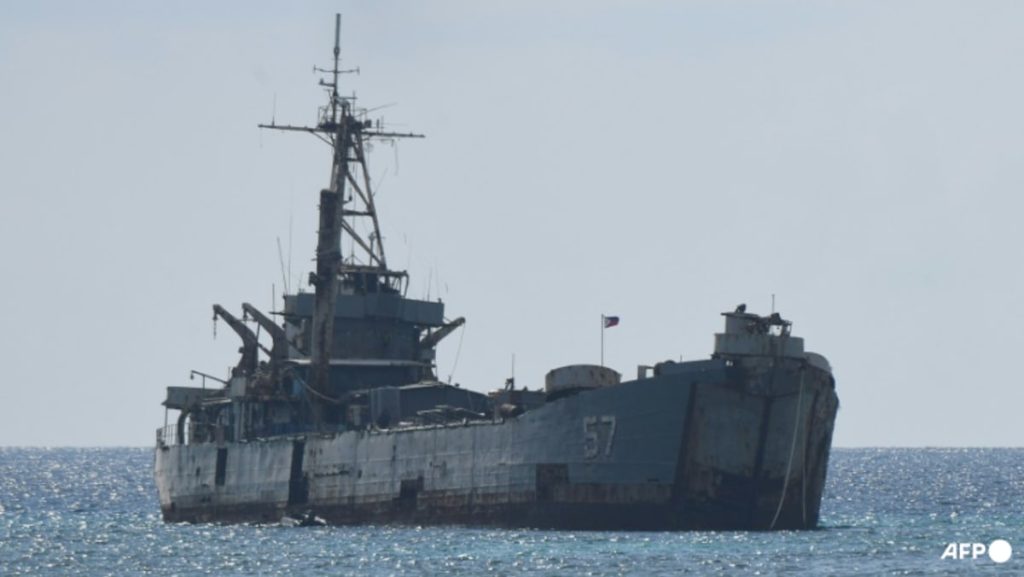Manila has emphasized its intention to assert its rights over Second Thomas Shoal in the South China Sea. This comes after reaching an agreement with Beijing for the resupply of Filipino troops stationed on a grounded warship in the area. The deal, described as a “provisional arrangement,” has been rejected by the Philippine foreign ministry in regards to China’s suggestions that prior notification and verification of deliveries would be required.
China claims a large portion of the South China Sea, including Second Thomas Shoal, which is situated about 200km from Palawan in the Philippines and over 1,000km from China’s Hainan island. The agreement reached between Manila and Beijing was the result of careful and meticulous consultations, according to foreign ministry spokeswoman Teresita Daza. She emphasized that the agreement did not compromise national positions, despite China’s claims to the contrary regarding notification and on-site confirmation of deliveries.
The Philippines remains committed to upholding its rights and jurisdiction in its maritime zones, including Second Thomas Shoal. This area has been the site of violent clashes between Chinese and Philippine vessels as China continues to assert its claims over the South China Sea. The agreement reached with Beijing signifies a delicate balance between asserting national sovereignty and ensuring the safety and well-being of Filipino troops stationed in the area.
The resupply agreement between the Philippines and China marks a significant development in their relations in the midst of ongoing tensions in the South China Sea. Manila’s refusal to comply with China’s demands for prior notification and verification of deliveries demonstrates its commitment to defending its territorial claims in the region. This stance has the potential to further strain relations between the two countries, as China continues to assert its dominance in the disputed waters.
The Philippines’ determination to assert its rights over Second Thomas Shoal and the South China Sea reflects a broader trend of countries in the region pushing back against China’s expansive territorial claims. As China becomes more assertive in its efforts to control key strategic areas in the South China Sea, neighboring countries like the Philippines are mobilizing to protect their interests and assert their sovereignty. The resupply agreement is just one example of Manila’s efforts to maintain a presence in the disputed waters and defend its territorial integrity.
Moving forward, the Philippines is likely to face continued challenges in defending its claims in the South China Sea against China’s growing assertiveness. The resupply agreement, while providing temporary relief for Filipino troops stationed in the area, underscores the broader geopolitical tensions in the region. As China’s influence continues to expand, the Philippines will need to navigate a delicate balance between asserting its rights and maintaining diplomatic relations with its powerful neighbor. The situation in the South China Sea remains fluid, with potential implications for regional stability and security.


